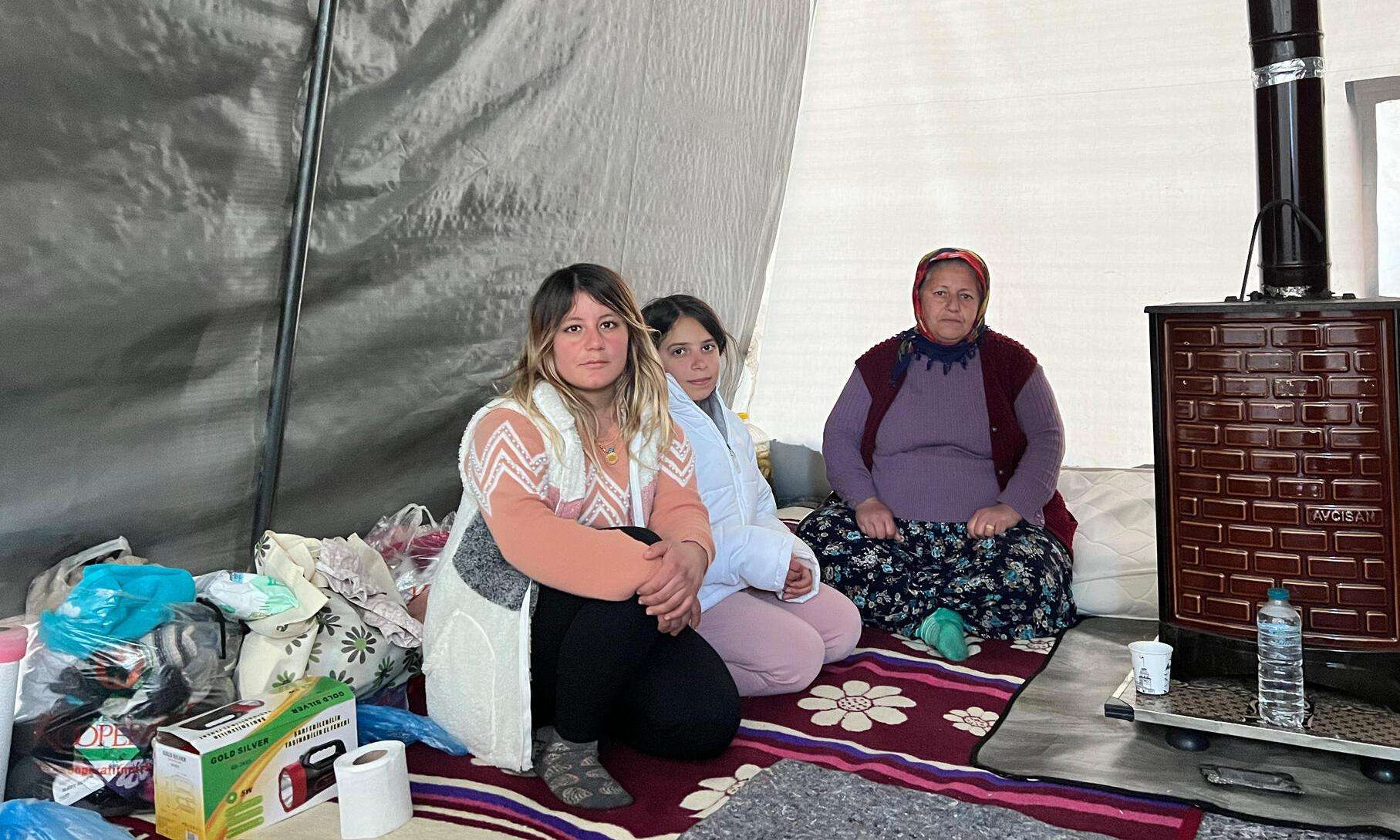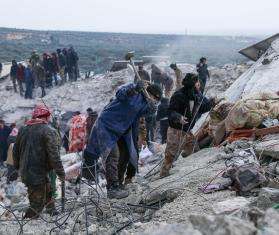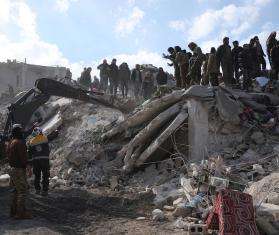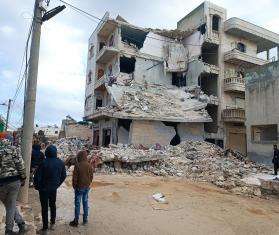The devastating earthquakes that struck south Türkiye and northwest Syria on February 6 have resulted in a shocking number of deaths and injuries and caused untold damage to infrastructure in both countries. At the time of the disaster, Doctors Without Borders/Médecins Sans Frontières (MSF) was already working in northwestern Syria with nearly 500 staff members supporting local communities who have endured more than 12 years of war.
Below, we hear from other MSF staff and patients about their experiences and the path forward.
Aisha, an MSF midwife supervisor from Azaz in northern Syria
At first, we didn’t know what was happening, but after about 10 seconds we realized it was an earthquake. I yelled at my husband to get our two-year-old daughter Lareen. I ran to wake up our other two children. As a mother, I just wanted to be there for my children, especially as my eldest son was killed during the shelling of Aleppo. We made our way out to the street.
Our neighbors on the upper floors threw their kids down for us to catch them. Everyone was throwing their kids. We caught them and helped them out of the building. Outside, we looked around us in complete shock. Our tears were mixed with blood. We didn’t understand what was happening.
February 06 07:43 AM
Earthquakes in Turkey and Syria: What is MSF doing?
MSF teams in northern Syria have been responding since the first hours of the disaster
Read More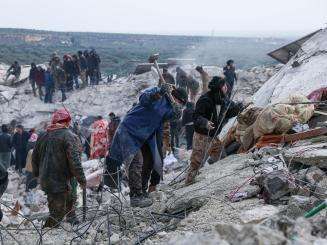
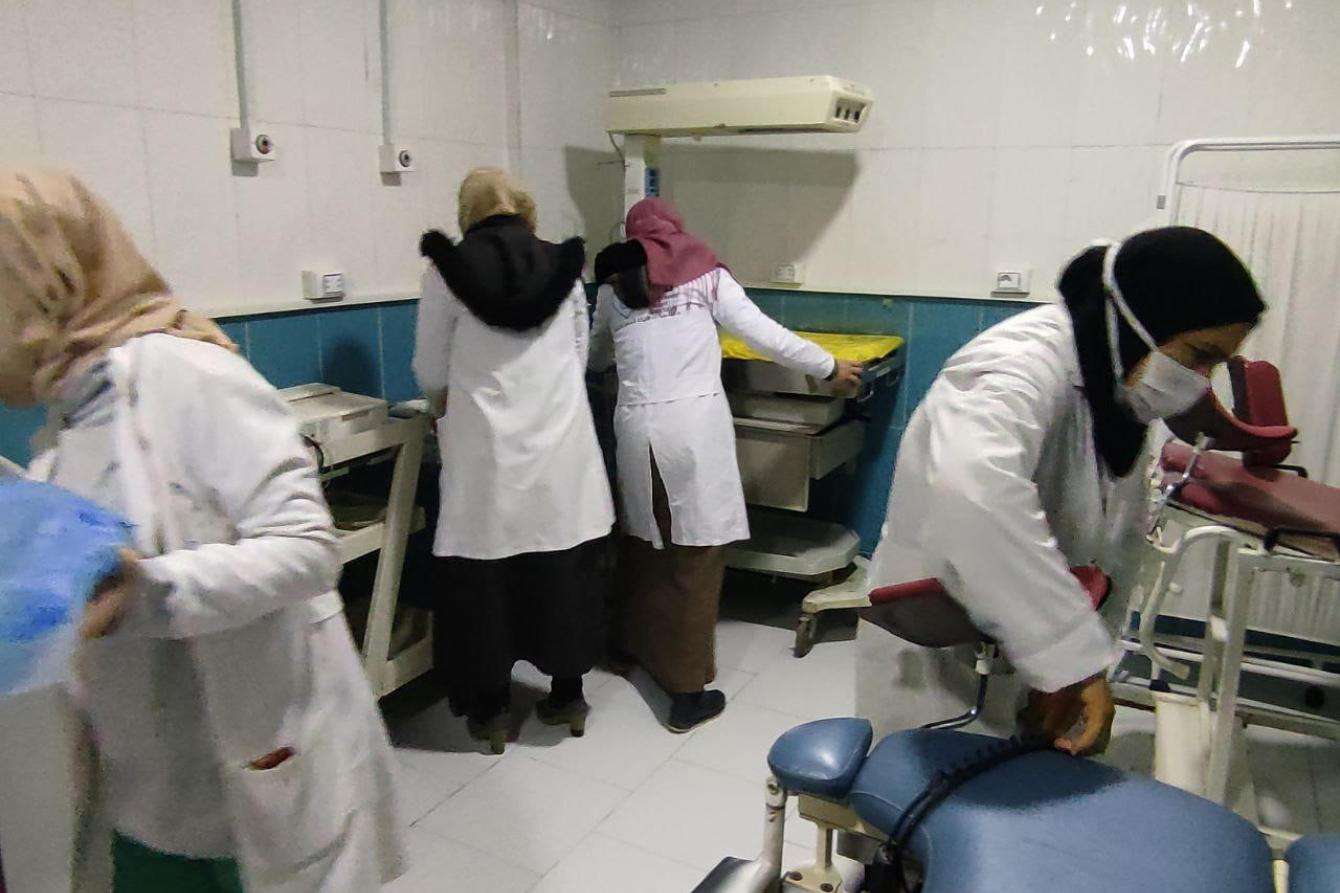
At the hospital, we received more than 50 injured people who arrived at the hospital from all regions. All four operating theaters were at capacity. The rooms were covered in blood. The surgeons were performing osteotomies [bone-cutting procedures] and laparoscopies [abdominal surgery]. There was a huge shortage of equipment, and the surgeons couldn’t carry out all the osteotomies required—they had to refer patients to other hospitals for surgery.
We tried to relieve the pain of the children as much as we could. We took them to the nursery room to keep them away from the blood and harsh sights of the hospital. That’s all we could do.
At midnight, there was a call for an orthopedist [bone specialist] to amputate the foot of a girl who was trapped under the rubble. They needed a doctor and an anesthetic technician to perform the amputation on a girl who was still under rubble. On location, the girl cried, “Don’t worry about my foot, save me without my foot—just get me out of here. It’s dark and I’m scared!”
The scene was horrifying. Everyone was saying it felt like the end of the world.
Samar, MSF health promotion supervisor in northwestern Syria
I’m still shocked. I can’t come to terms with what happened. The disaster is still ongoing. I can’t bring myself to go back home. We went to the hospital yesterday. My husband's friend's family all died except for one girl. We visited her in the hospital. She told us how they gathered in one place. She headed to the door with her brother. Their younger sister followed them. She told me how the roof fell on top of her father, killing him—how her father said his last words and passed away.
“When the rubble fell, my sister landed underneath me,” the younger sister said. “My sister Tala choked because of me. She was screaming at me to get away from her, but I couldn't. The rubble was on top of me.” The rubble fell on her brother’s leg, amputating it. The girl's legs were broken. The needs are immense. All people care about now is saving people from under the rubble.
February 10 04:00 PM
Syria earthquakes: “The disaster is still ongoing.”
An MSF team member who survived the earthquakes describes her experience
Read More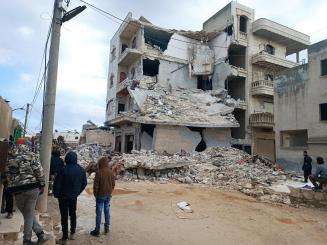
Ahmed Rahmo, the MSF project coordinator for the Idlib region
Just a week before the earthquake, a snowstorm hit the area. Living conditions have significantly deteriorated. We have made donations of heating equipment, blankets, and mattresses, all essential in these weather conditions, as temperatures are reaching negative figures at night. Today, an increasing number of people are forced to join these camps, and reception centers have been opened to accommodate more displaced people. There are 15 camps in the Idlib region for now, and we have launched mobile clinics to offer medical consultations in five of these. We will expand this activity in the coming days.
MSF teams have also intervened by donating medical items to more than 10 hospitals. We are responding to a variety of needs, which relate in particular to traumatology, obstetrical care, or dialysis. We have also sent some of our medical staff from our hospital in Atmeh, which specializes in the care of burn victims, to support other hospitals, whose staff have been overwhelmed by the number of injured. Our surgeons were able to help them. We have also mobilized our ambulances to be used for transfers between hospitals.
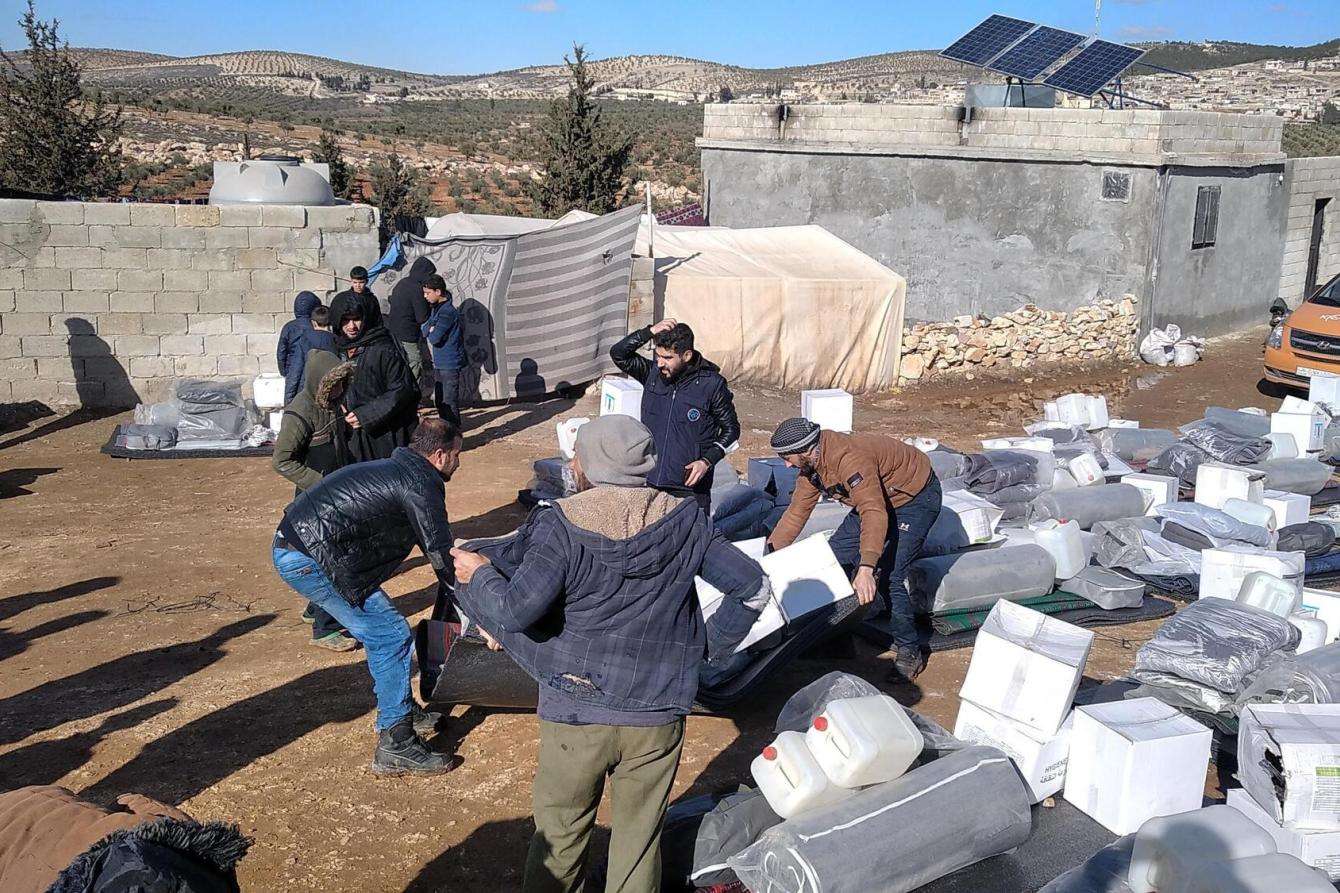
Since September, MSF teams have also been working to stop the spread of cholera, a disease that proliferates in precarious conditions with lack of access to clean water. MSF can’t cover all the need, especially as the general situation is worsening. For many inhabitants of this region, living conditions have become even more dire.
Sherwan Qasem, MSF staff from Syria on MSF’s emergency team in Amsterdam
There are around 4 million people living in this region, 2.8 million of whom have already been displaced—some more than once. I’ve met people who have been displaced 20 times. Many of these people have been unable to leave the country because they lack resources, or they choose to remain to take care of their relatives who are sick, who need support, or who are unwilling to leave the country of their birth.
On top of this, there are more than 3.6 million Syrian refugees in Türkiye, the majority of whom were living in the four provinces most affected by the earthquake. When people fled Syria into Türkiye to seek safety [from the conflict], most wanted to stay as close as possible to the Syrian border so that they could one day return home.
Yesterday my mother said to me: “My son, I don't know what may happen tomorrow. Every year for 12 years we have hoped that this would be the last year of our suffering.”
February 10 11:52 AM
Turkey-Syria earthquakes: A disaster on top of an emergency
“Every year for 12 years we have hoped that this would be the last year of our suffering.”
Read More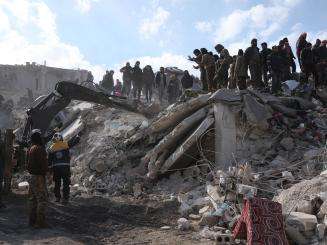
Dilan, 23-year-old earthquake survivor from Adiyaman, Türkiye
There are five of us: my parents, my two siblings, and me. I was a cleaner at a hospital on the outskirts of the city. My house is just over there [three feet away], but now we’re staying in this camp with other families from the neighborhood. The house is completely destroyed.
First, we started to collect things we needed, then three days ago we moved in here. An organization gave us this tent. All we want is to have a normal life again: to eat well, live in a warm place.
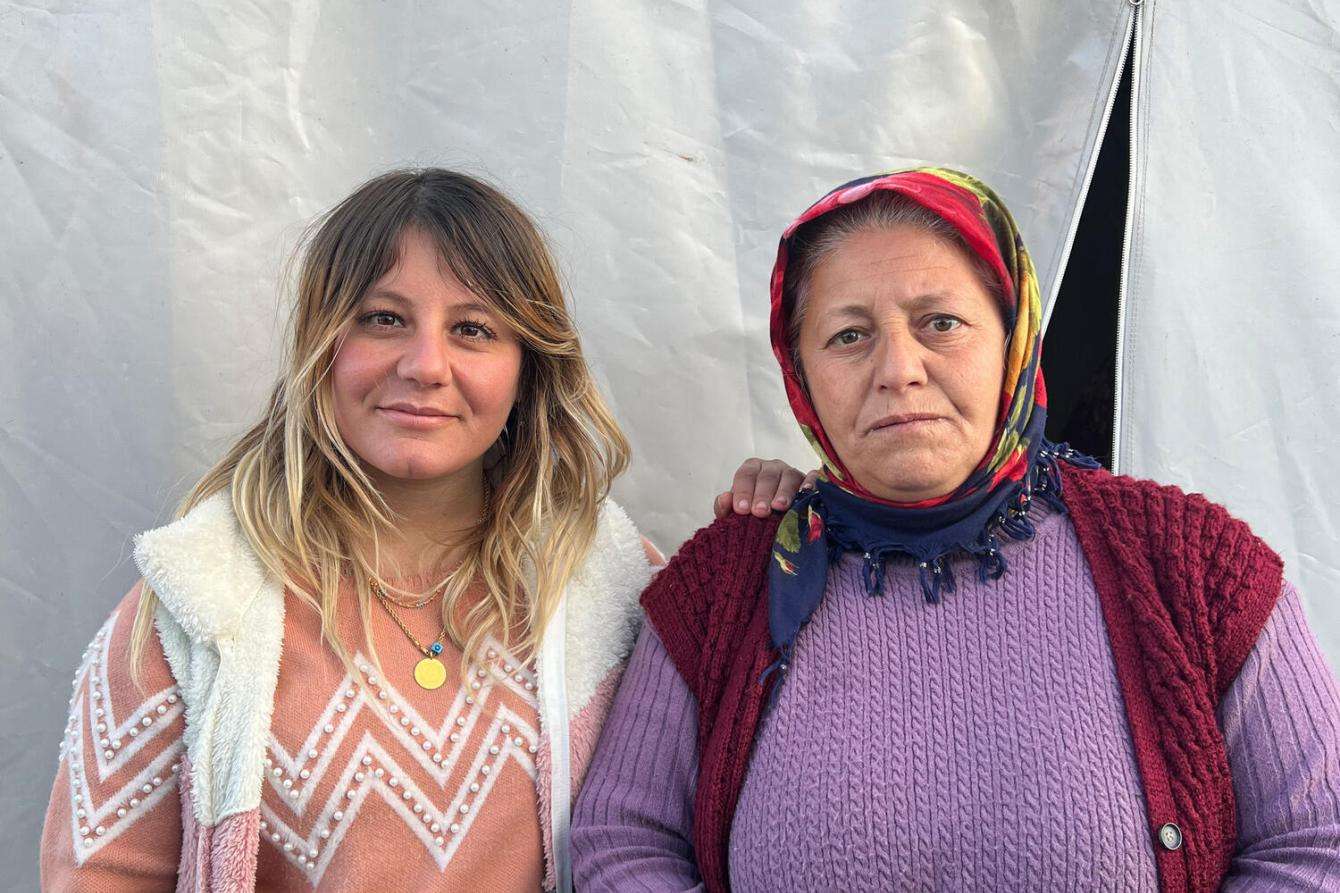
We don’t have any plans to move. We wouldn’t know where to go because we have always lived in Adiyaman. What can we do? This is our place, our life.
Now we spend our days not doing much: standing around, looking…and it’s very cold. Every now and then we get the feeling that the floor is shaking.
Nazlican, 22-year-old earthquake survivor from Adiyaman, Türkiye
I’m a student, studying English at university. Before the earthquake, I was full of dreams. I wanted to do an Erasmus exchange to another country. But everything changed in a few minutes that night. I can no longer study, and our situation now is very hard.
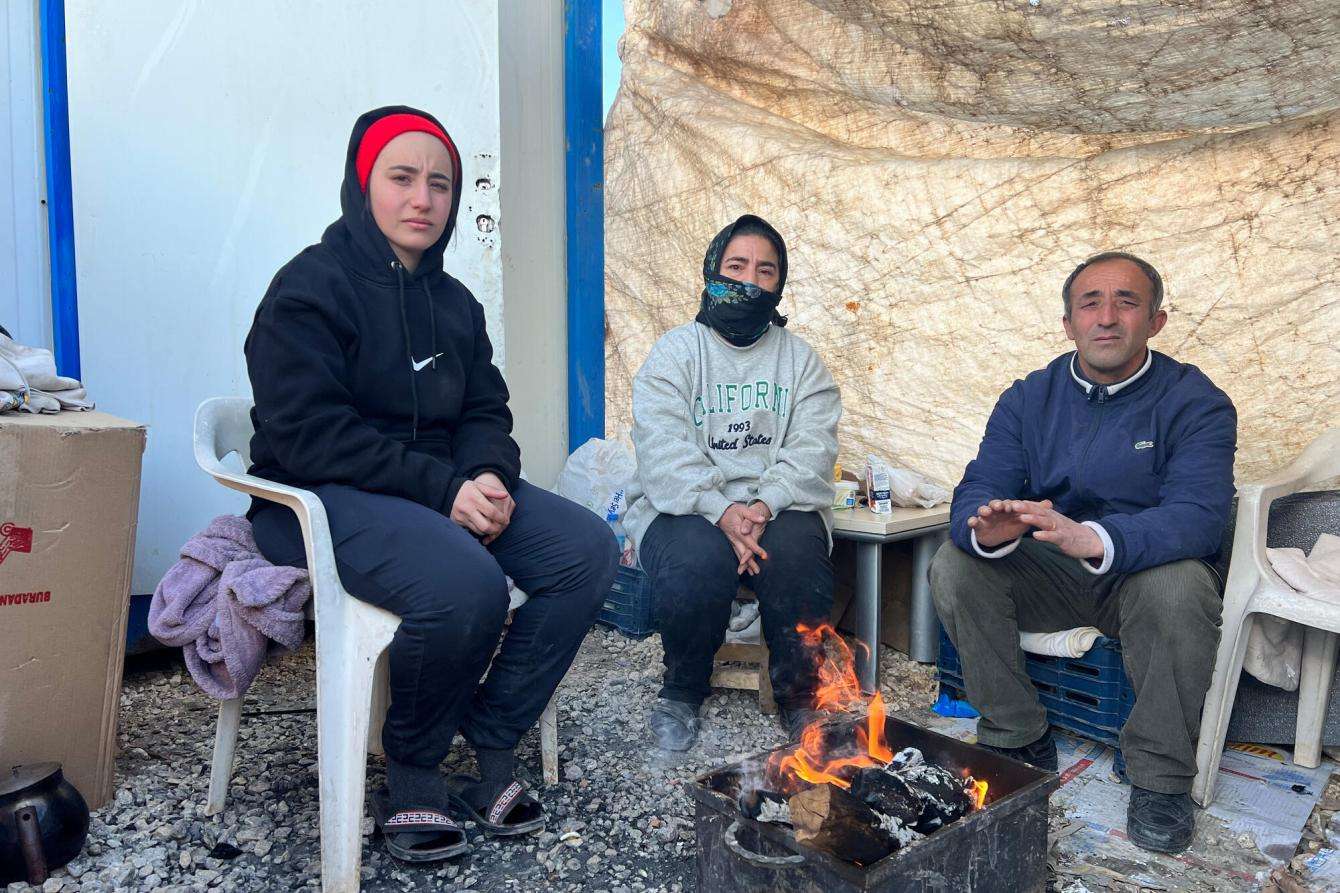
I was asleep in a bedroom on the first floor of a three-story building when it started to shake. I tried to protect my younger sister. When the shaking stopped, our mother joined us. We went out into the street. It was raining and it was very dark and cold. There were lots of aftershocks. We stayed in our car. I thought we were going to die.
We have lost everything. We had a mortgage on this flat in Adiyaman. We had another house in a village near Malatya but it was destroyed too—my dad went to check on it. We’ve been living in this [shipping] container for 10 days. The container was already in the neighborhood and we were able to move in. It’s a small space for the six of us, my parents and my three siblings.
